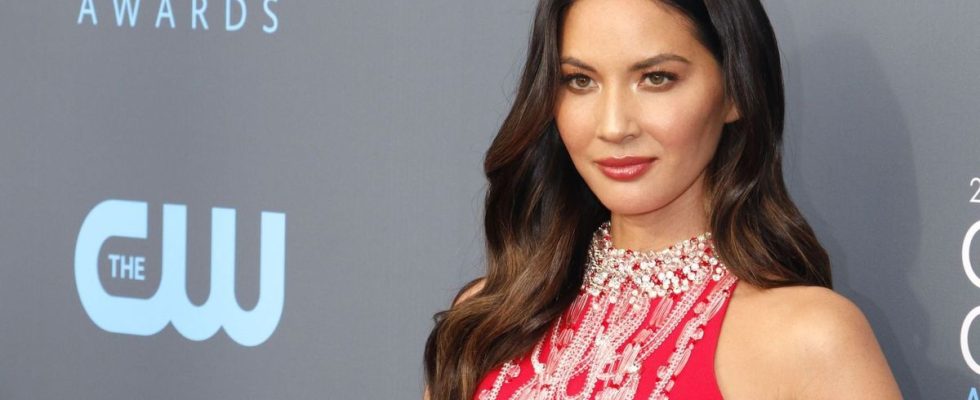Published on
Updated
Reading 3 min.
Actress Olivia Munn has just announced that she has breast cancer. She also specified that her diagnosis was made possible thanks to a test of around ten questions, relating to her history and her risks of developing the disease.
Actress Olivia Munn, star of the film “X-Men: Apocalypse” announced on Wednesday March 13 that she had been diagnosed with breast cancer and that as a preventative measure, she had undergone a double mastectomy, like Angelina Jolie a few years ago . Beyond this announcement, it is the way in which she was able to benefit from this diagnosis which is striking. The 43-year-old young woman explains that she used a screening test recommended by her doctor, consisting of around ten questions.
An online test recommended for women aged 35 and over
This breast cancer risk calculator was therefore produced by Olivia Munn, with a result of 37%. This prompted doctors to carry out further tests on the young woman, who eventually discovered her illness. The test (available online in English) includes the following questions:
1. Do you have a medical history of breast cancer or ductal carcinoma in situ (DCIS), lobular carcinoma in situ (ICL), or have you received previous radiation therapy to the chest for the treatment of Hodgkin’s lymphoma?
2. Do you have a mutation in the BRCA1 or BRCA2 gene, or a genetic diagnosis that might be associated with a high risk of breast cancer?
3. How old are you? (This tool calculates the risk of women aged 35 to 85)
4. What is your race/ethnicity?
5. Have you ever had a breast biopsy with a benign diagnosis?
If you do not answer or unknown, go to question 9.
6. If yes, how many breast biopsies with a benign diagnosis have you had?
7. Have you ever had a breast biopsy with atypical hyperplasia?
8. How old were you when you had your first period?
- Between 7 and 11 years old
- Between 12 and 13 years old
- At 14 years or older
9. How old were you when you gave birth to your first child?
- You don’t have children
- 20 years
- Between 20 and 24 years old
- Between 25 and 29 years old
- 30 years or older
- Do not know
10. How many of the woman’s first-degree relatives (mother, sisters, daughters) have had breast cancer?
- None
- A
- More than one
- Do not know
You can find this questionnaire online on the website bcrisktool.cancer.gov
Tests whose results are not “absolute”
Olivia Munn’s doctor estimated that based on her age, family history and the fact that she had her first child after age 40, the actress had more than a third more risk of developing the disease. disease. The actress is convinced that this test saved her life, as she says in an Instagram post. He therefore deemed it appropriate to pursue further investigations, which made it possible to pinpoint his cancer very early.
This breast cancer risk assessment tool is based on a statistical model to estimate a woman’s risk of developing breast cancer over the next 5 years as well as over her lifetime according to American authorities, the National Institute of Health.
The tool includes several questions about the person’s medical history, reproductive history (age of first period, child at what age, etc.) and family history. Although this test is normally used by doctors, patients can also complete the assessment online.
There are generally two models allowing such an assessment of breast cancer risk: the Gail model and the Tyrer-Cuzick risk assessment calculator, used by the actress. A high score may lead the doctor to recommend additional breast evaluations such as a typical mammogram or MRI.
Please note, this test does not have an absolute value: sometimes the result is higher in a woman who will not develop breast cancer, while it will be lower in another woman who will have the disease. If in doubt, it is always best to discuss it with your doctor.
Women who are at particular risk of breast cancer benefit from specific screening and in women carrying the BRCA1 or BRCA2 genes, with a very high risk, the use of preventive mastectomy is capable of drastically reducing the risk of mortality, as recently confirmed by a new study.
